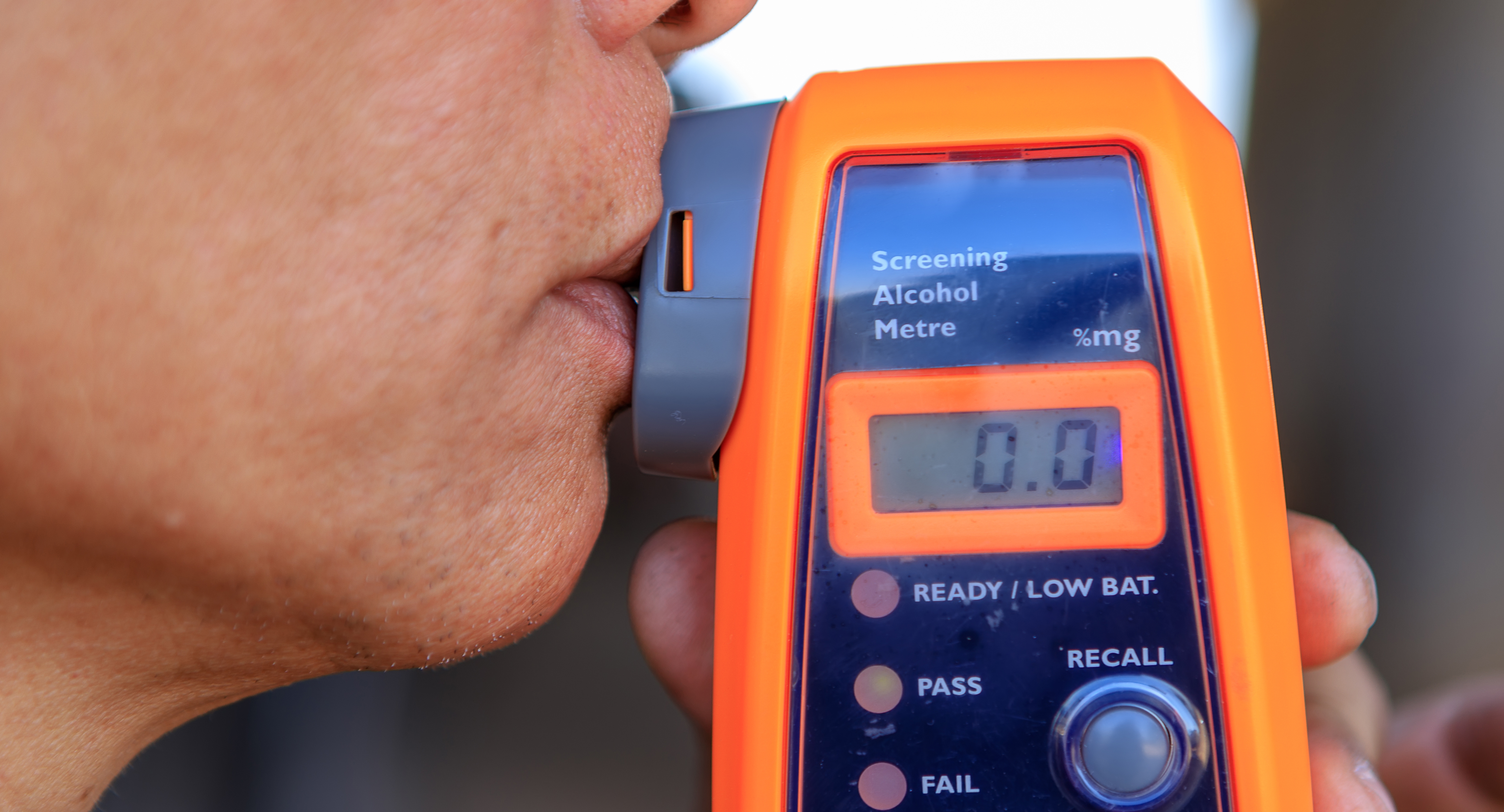- In Texas, DUI stands for driving under the influence. It applies to minors under the legal drinking age of 21
- DWI (driving while intoxicated) applies to adults and minors whose blood alcohol concentration exceeds .08
- There is no minimum BAC requirement for a DUI charge – any sign at all that a minor was consuming alcohol is enough
DWI and DUI have different definitions in Texas.
DWI stands for Driving While Intoxicated, and is the more common charge. Anybody can be charged with a DWI if they are suspected of operating a motor vehicle with a BAC of greater than 0.08%, or are deemed to be intoxicated.
DUI – Driving Under the Influence – on the other hand, is specifically for those under 21 years of age. You can be charged with DUI if you are under 21 and have any amount of alcohol on your breath.
If you’re under 21 and are intoxicated or have a BAC greater than 0.08%, you can also be charged with DWI.
In this post, we’ll go over each type of charge and the differences between the two.
What is a DUI in Texas?
Texas has a zero-tolerance policy for minors committing alcohol-related offenses. In Texas, a person under the age of 21 may not purchase, attempt to purchase, consume, or possess any alcoholic beverages.
Here’s what the Texas Alcoholic Beverage Code defines as Driving Under the Influence:
DRIVING OR OPERATING WATERCRAFT UNDER THE INFLUENCE OF ALCOHOL BY MINOR. (a) A minor commits an offense if the minor operates a motor vehicle in a public place, or a watercraft, while having any detectable amount of alcohol in the minor’s system.
Alcoholic Beverage Code Sec. 106.041
The critical choice of words to note in the above section is “…any detectable amount of alcohol…” In other words, you don’t have to be drunk to be charged with a DUI. If you are stopped by law enforcement, and there is evidence that you’ve consumed any alcohol, you can be charged with DUI.
Furthermore, minors can also be charged for DWI and punished as an adults if it is found that the threshold for “intoxicated” as laid out in Texas Penal Code § 49.04 has been breached. For example, if they register a BAC of 0.08 or more, have slurred speech, have bloodshot eyes, or fail field sobriety tests.
What is a DWI in Texas?
Here’s what the Texas Penal Code defines as Driving While Intoxicated:
Sec. 49.04. DRIVING WHILE INTOXICATED. (a) A person commits an offense if the person is intoxicated while operating a motor vehicle in a public place.
The three factors considered in DWIs are whether a person is “intoxicated” as defined in the Texas Penal Code, whether they are “operating” a vehicle, and whether they are in a “public place” while doing so.
The Texas Penal Code defines “intoxicated” as either one or both of the following:
- Not having the normal use of mental or physical faculties as a result of drinking alcohol, taking drugs (legal or otherwise), or a combination of both
- Having a blood alcohol concentration of 0.08 or more
Although the second definition can be proven with a breathalyzer or blood test, the first definition is subjective. An arresting officer doesn’t have to prove that your BAC is over 0.08 to be able to arrest and charge you with DWI.
The following characteristics and behaviors could be used as circumstantial evidence of drunk driving:
- Slurred speech
- Failure to maintain eye contact
- Confrontational or combative behavior
If you are over the age of 21, drinking a few sips of alcohol before driving is not enough on its own to charge you with a DWI — you must demonstrably appear impaired or have a blood alcohol concentration of 0.08 or more.
DWI vs. DUI: Comparison Table
Here is a direct comparison of the charges, requirements, and penalties for a first DUI or DWI offense.
| DWI | DUI | |
| Who can be charged? | Anyone with the required blood alcohol content | Only people under age 21 will be charged with DUI |
| Charge | Class B misdemeanor | Class C misdemeanor |
| Minimum blood alcohol content (BAC) | .08% or higher | No minimum; Texas is a zero-tolerance state |
| What is the maximum fine? | $2,000 | $500 |
| Is jail time possible? | Yes, three to 180 days | No |
| Is it possible to lose my driver’s license | Yes, for up to a year | Yes, for 60 to 180 days |
| Will I have to do community service? | Not if you’re convicted, but you might as a condition of a plea bargain | Yes, up to 40 hours |
| Will my conviction show up on a background check? | Yes, unless your record is sealed or expunged | Yes, unless your record is sealed or expunged |
| Do I have to be driving to be charged with DWI/DUI? | No, adults can be charged with DWI as long as police can establish reasonable suspicion that they have been operating the vehicle | No, you can be charged with DUI if police suspect you’ve been operating the vehicle (for example, sitting in the car with the engine running) |
| Can I be arrested even if I don’t appear to be intoxicated? | Yes, this is why it’s so important to have good legal representation. If a police officer has any suspicion of impaired reaction, you can be arrested | Yes, police only need to establish probable cause that you’ve consumed alcohol or drugs |
| Will I have to attend an alcohol awareness class? | Yes, a 12-hour DWI education course | Yes |
| Will I need an attorney? | Yes, a DWI conviction will have long-term implications | Yes, a DUI conviction can have lifelong ramifications |
| Will I be required to have an ignition interlock device? | Not always: a judge will only order an IID if specific criteria are met | Only if you require an Occupational License |
| Will my auto insurance cost increase? | Yes, your rates could increase by 64%, according to insurance.com | Rates for 18-year-olds go increase by 50% on average after a DUI |
| Other noteworthy differences | A minor with a blood alcohol content of .08 or higher can be charged with both DUI and DWI | The above are penalties for young adults under the age of 17. DUI penalties for drivers between the ages of 17 to 21 are slightly different because they will be charged as adults. |
It’s important to note that even if you’re a minor, you can be charged with DWI if your blood alcohol content is high enough.
Have You Been Charged With DWI or DUI in Texas?
It’s always worth fighting DWI and DUI charges, but you’ll need the help of a DWI attorney with a track record of success.
Don’t settle! If you — or your spouse or child — have been charged with DWI, remember that a conviction can stay with you for life.
DWI convictions typically remain on your record forever.
And a conviction now could elevate a future DWI — even if it is 20 years (or more) from now.
A skilled DWI attorney may be able to get DWI and DUI charges against you dismissed. There are several strategies we will use, depending on the circumstances of your case and the evidence that’s being used against you. These can include:
- Lack of reasonable suspicion: We will study the circumstances of your traffic stop. If the arresting officer did not have reasonable suspicion for pulling you over, then the case can be challenged.
- Lack of probable cause: If the officer arrests you despite not finding any evidence of drunk driving, and you did not appear impaired, we will get your case dropped.
- Improper Breathalyzer testing: Breathalyzer results are not always accurate. The machines must be calibrated correctly, and the officer must be trained to use them properly. We have a team of experts on staff to challenge your test results if necessary.
- Improper field sobriety testing: There are many reasons a person could fail field sobriety tests despite not being drunk. We will study all the evidence and reports to catch inconsistencies.
Our No. 1 goal is to get you the best possible outcome. Schedule a free case review today.




